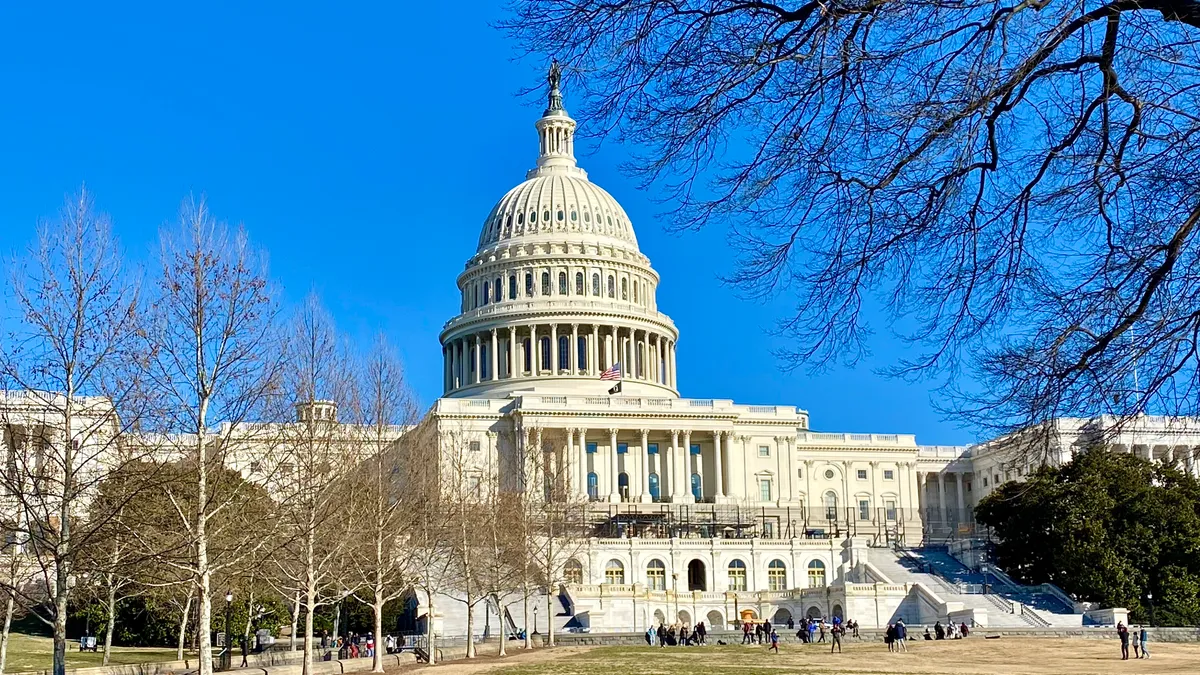Dive Brief:
- The American Institute of CPAs urged top lawmakers to make 61 changes throughout much of the Internal Revenue Code, including corporate tax, employee benefits, S corporations, partnerships, individual tax, methods for taxation, and trust, estate and gift tax.
- The 159 pages of legislative recommendations would simplify current rules and “correct technical problems,” the AICPA said in its report to leading Democrats and Republicans on the Senate Finance Committee and House Ways and Means Committee. “The proposals generally promote simplicity.”
- The suggestions focus on “improving tax administration, making the tax code fairer and effectively promoting important policy objectives,” the AICPA said. “It is not a comprehensive list of all the provisions that Congress should add back or remove from the” tax code.
Dive Insight:
Partisan wrangling over the tax code has intensified since Republicans last month took control of the House from Democrats.
Twenty-six Republicans back a bill introduced in January that would wipe out the tax code — including income tax, estate tax, payroll tax and gift tax — and create a 30% sales tax. Under the Fair Tax Act, the states would collect the revenue and channel it to Washington, making the IRS superfluous.
The legislation is a clear sign of Republican opposition to a Biden administration bill passed last year earmarking $80 billion for the IRS during the coming decade to upgrade technology, bolster taxpayer service and strengthen corporate and individual tax enforcement.
In its first vote this year, the House on Jan. 9 voted to claw back $71 billion of the new IRS funding devoted to enforcement. The bill will likely die in the Democratic-controlled Senate.
In an attack on another signature Biden administration tax initiative, Republicans have voiced opposition to an agreement by the U.S. and more than 130 other countries setting a 15% minimum global tax on corporations.
Led by the Organization for Economic Cooperation and Development, the agreement would apply to companies with annual revenue exceeding 750 million euros ($804 million) and generate about $150 billion in additional annual tax revenue, according to the OECD. It would also reallocate $125 billion of profits from 100 of the world’s biggest companies to countries worldwide.
After rallying overseas approval for the minimum tax in 2021, Treasury Secretary Janet Yellen said the agreement would end “international tax competition,” curtail billions of dollars in tax avoidance and shore up revenues for federal programs.
Republicans including House Ways and Means Committee Chair Jason Smith of Georgia have refused to ratify the accord, saying it would harm the U.S.
“The global tax deal would result in fewer jobs and less prosperity for millions of American families,” Smith said in a Feb. 10 letter to OECD Secretary General Mathias Cormann. “The technocrats negotiating this backroom deal in Paris have sought to attack the United States, and delegates from the Biden administration have not stopped them.”
The AICPA’s recommended changes to the tax code “are generally noncontroversial,” the institute said. It recommends that lawmakers ease tax complexity for small businesses by creating a de minimis threshold for applying the tax codes’ section 382 loss limitation rules following a change in company ownership.
The AICPA urges lawmakers to clarify under section 382(1)(5)(A) what it means to be “under the jurisdiction of a court” versus “in bankruptcy.” It also suggests that Congress consolidate and simplify the more than 10 types of tax-favored retirement plans and their underlying rules.
“Although some consolidation of the rules governing these options were introduced in recent years, further simplification of the confusing array of retirement savings options should take place,” the institute said.












